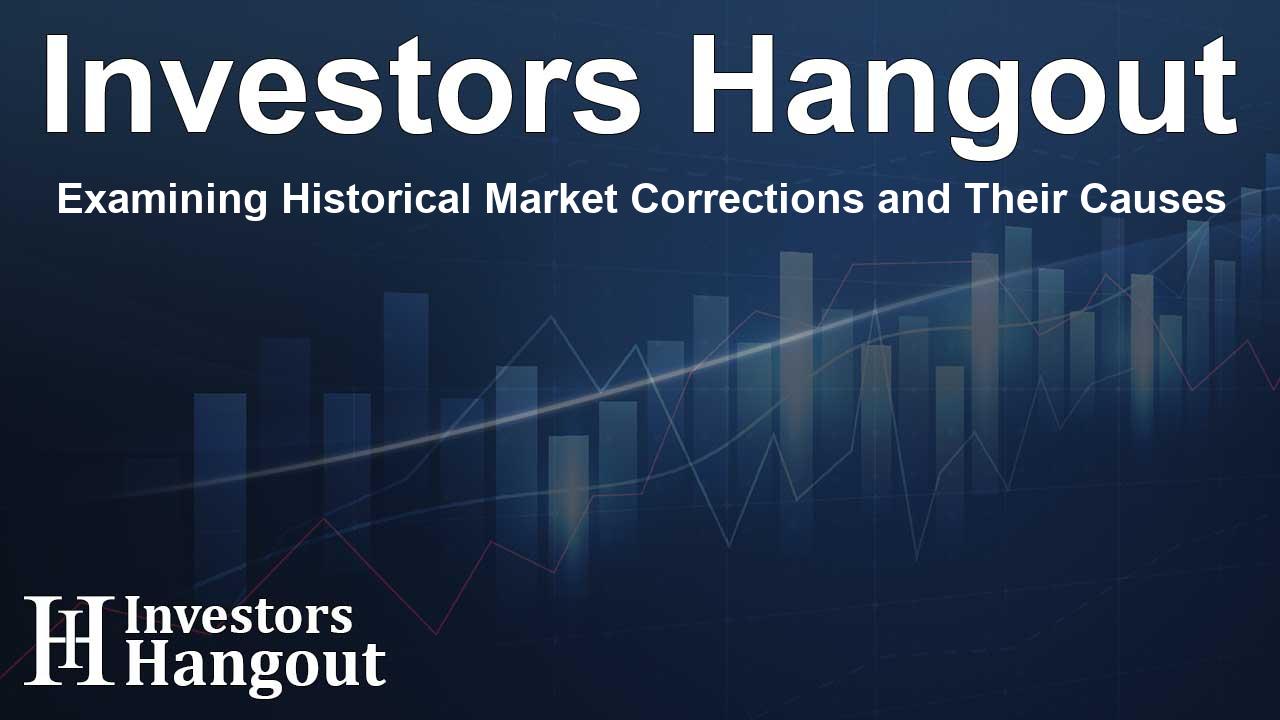Examining Historical Market Corrections and Their Causes

Understanding Major Market Corrections in History
Market corrections often unfold dramatically, especially when exuberance drives valuations to unsustainable peaks. Historical analysis reveals that certain periods are characterized by excessive market optimism, which eventually results in sharp downturns.
The Dot-Com Bubble of the Late 1990s
One notable episode was the late 1990s dot-com bubble. During this era, particularly within the technology sector, stock prices skyrocketed. The S&P 500 index, between 1995 and 2000, tripled as enthusiasm for internet-based companies reached new heights. Investors believed fervently in the internet's potential, which drove valuations to extraordinary levels.
Consequences of the Tech Boom
This surge, however, was heavily concentrated in a few technology stocks, showcasing a pattern familiar in today's market. When the bubble finally burst, the S&P 500 faced a staggering three years of successive losses from 2000 to 2002, marking a significant downturn not seen since World War II.
Pre-Global Financial Crisis Optimism in 2007
Another pivotal moment occurred before the global financial crisis in 2007. The market seemed stable, with the S&P 500 climbing to new heights and minimal volatility recorded. Investors enjoyed a period known as the "Great Moderation," which mistakenly fostered a sense of security and complacency.
Dangers of Complacency
As noted by economists, this extended stability sowed the seeds for risky financial behavior. When the subprime mortgage market began to crack, it set off a chain reaction throughout the globally interconnected financial systems, leading to a financial collapse that wiped out trillions in wealth.
The Post-Pandemic Market Surge of 2021
The landscape transformed dramatically during and after the Covid-19 pandemic. The abrupt economic downturn in 2020 was countered with unprecedented monetary and fiscal stimulus, generating a rapid recovery by late 2021. In this period, asset values surged across various sectors, significantly affecting equities, bonds, and cryptocurrencies. The S&P 500 recorded impressive double-digit gains, while cryptocurrencies like Bitcoin reached unprecedented heights.
Shift in Monetary Policy and Its Impact
However, the enthusiasm experienced in the market faced a reality check in late 2021. The Federal Reserve's acknowledgment that inflation was no longer transitory led to a shift in monetary policy, prompting aggressive rate hikes in 2022. This decision sparked a sell off across all major markets, leading to a correction that saw the S&P 500 decline over 25% from its peak in January 2022 to its lows in October of the same year.
Lessons from Historical Corrections
Each of these historical corrections teaches us valuable lessons about market behavior. The common thread throughout these episodes is that markets can remain irrationally exuberant for extended periods, only to face sharp realities once valuations reach unjustifiable levels.
Frequently Asked Questions
What causes market corrections?
Market corrections are typically triggered by unsustainable valuations, economic downturns, or changes in monetary policy that lead to a loss of investor confidence.
How often do market corrections occur?
Market corrections can occur at any time, but historically, they happen roughly every few years, often after prolonged periods of growth.
What was the dot-com bubble?
The dot-com bubble was a period in the late 1990s characterized by excessive speculation in internet-based companies, leading to a massive market crash at the turn of the century.
Why are market valuations important?
Market valuations help investors gauge whether assets are over- or under-valued, guiding their investment decisions and reflecting the economic landscape.
How did the 2021 market surge end?
The 2021 market surge concluded with a significant correction spurred by the Federal Reserve's actions amid rising inflation concerns, resulting in a notable decline in stock values.
About Investors Hangout
Investors Hangout is a leading online stock forum for financial discussion and learning, offering a wide range of free tools and resources. It draws in traders of all levels, who exchange market knowledge, investigate trading tactics, and keep an eye on industry developments in real time. Featuring financial articles, stock message boards, quotes, charts, company profiles, and live news updates. Through cooperative learning and a wealth of informational resources, it helps users from novices creating their first portfolios to experts honing their techniques. Join Investors Hangout today: https://investorshangout.com/
Disclaimer: The content of this article is solely for general informational purposes only; it does not represent legal, financial, or investment advice. Investors Hangout does not offer financial advice; the author is not a licensed financial advisor. Consult a qualified advisor before making any financial or investment decisions based on this article. The author's interpretation of publicly available data shapes the opinions presented here; as a result, they should not be taken as advice to purchase, sell, or hold any securities mentioned or any other investments. The author does not guarantee the accuracy, completeness, or timeliness of any material, providing it "as is." Information and market conditions may change; past performance is not indicative of future outcomes. If any of the material offered here is inaccurate, please contact us for corrections.